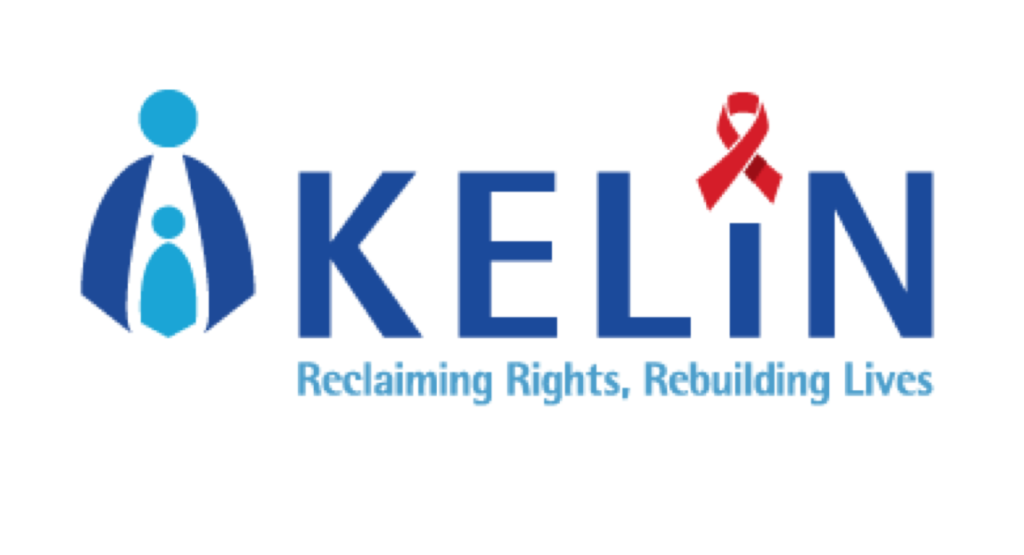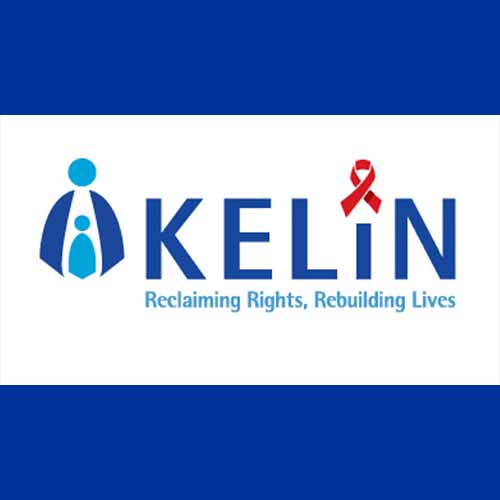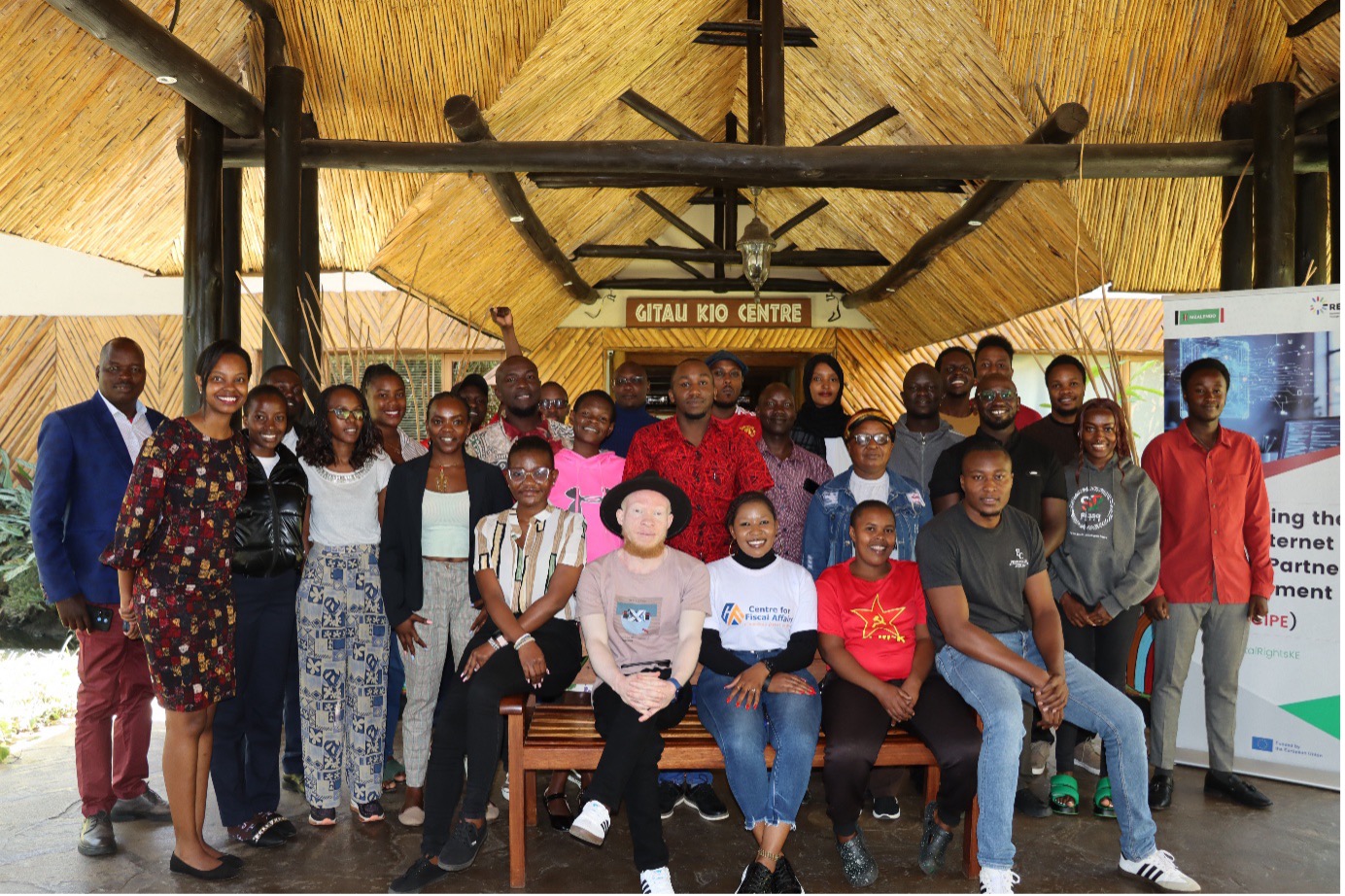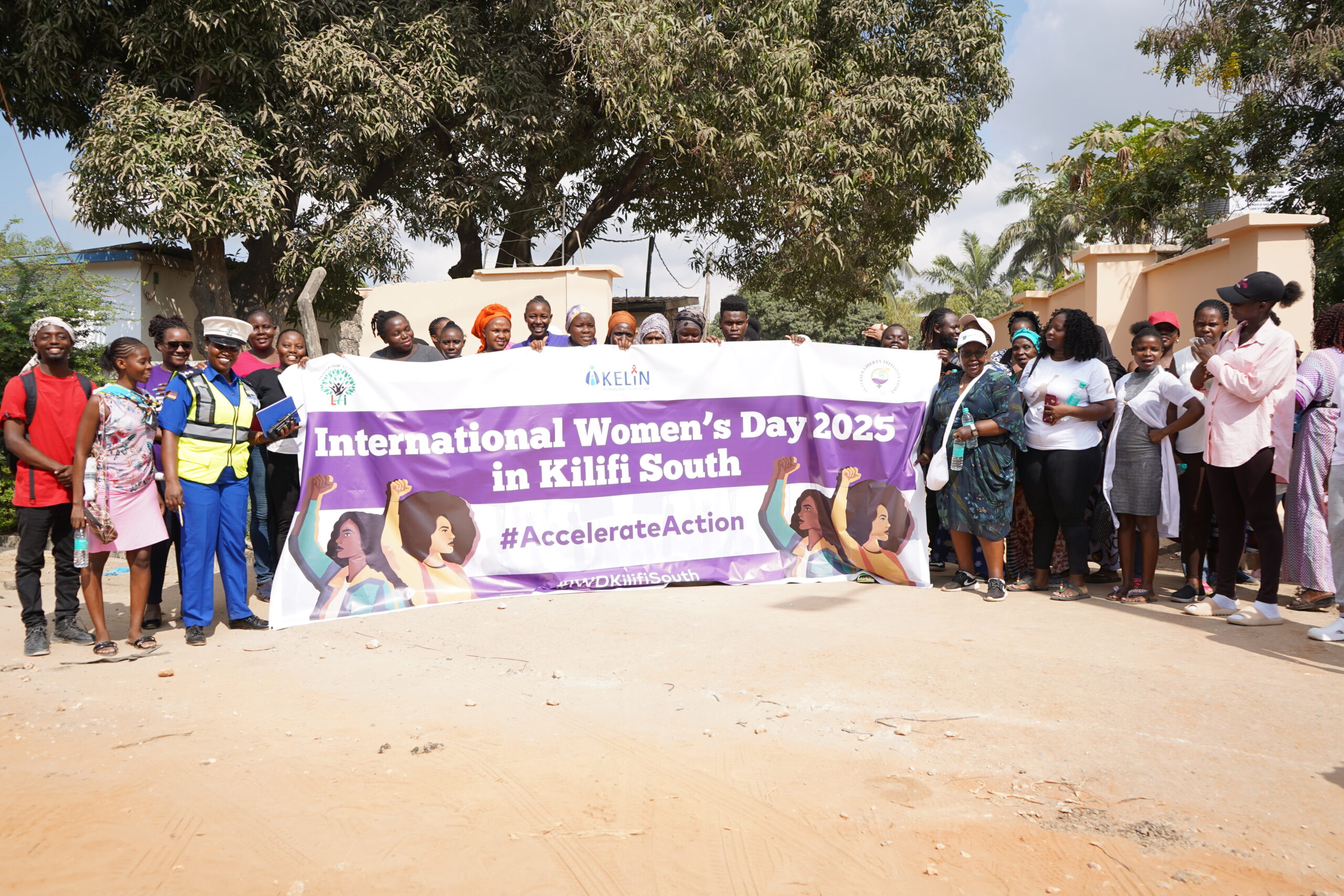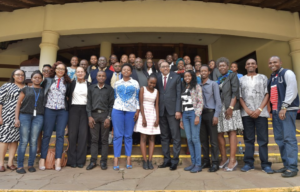
‘In conclusion, we need to see the fire in your belly once more. UNAIDS Kenya office needs to come out strongly to protect women against being paraded in stadiums; key populations need your voice when the government insists on using biometrics to do sample estimates; and children living with HIV need to know that you will fight for their rights when the president issues a mis-guided directive to collect their names. We need to hear your voice UNAIDS’.
This was the closing statement from KELIN’s Deputy Director, Tabitha Saoyo, while addressing Michel Sidibé, the Executive Director of UNAIDS, at a civil society forum on 25th May 2018.
The forum was made up of representatives of various organizations working in the HIV sector, including Lean on Me, Liverpool LVCT, Health Options for Young Men on HIV/AIDS (HOYMAS), Kenya AIDS NGOs Consortium (KANCO), Africa Sex Workers Alliance, Kenya Treatment Action Movement (KETAM), National Empowerment Network of Persons Living with HIV (NEPHAK), Sauti Skika, Elizabeth Glazier Paediatric AIDS Foundation (EGPAF), and Women Fighting AIDS in Kenya (WOFAK), among others. These organizations represent a wide variety of stakeholders involved in the fight against HIV, including sex workers, adolescents and youth, women, Gay, Lesbian and Trans movements, religious organizations, and injecting drug users.
The objectives of the luncheon were to:
(a) Explore the gains made in the country to achieve fast track targets (90.90.90). These targets indicate that by 2020, 90% of all people living with HIV will know their HIV status, 90% of all people with diagnosed HIV infection will receive sustained antiretroviral therapy and, 90% of all people receiving antiretroviral therapy will have viral suppression.
(b) Analyze what UNAIDS can do to ease the work of civil society; and
(c) Interrogate the challenges that exist and explore what can be done differently to achieve lasting and sustainable solutions in the HIV response.
During this forum, KELIN implored Mr. Sidibé to re-consider the implementation of the 90.90.90 fast track targets and ensure careful consideration of human rights implications in the roll out of interventions such as HIV testing of adolescents, and partner notification. KELIN stressed the need for due consideration of issues such as privacy, confidentiality, informed consent and safeguards against violence for persons who choose to test and reveal their HIV status to their partners.
KELIN further called upon UNAIDS to strengthen their technical role in the country and aggressively safeguard the rights of persons living with HIV whenever there is a miscarriage of justice due to government actions or omissions. This was coupled with the need for UNAIDS to be more involved in the roll out of the East Africa Community HIV Prevention and Management Act, 2012, which has favourable provisions for the protection of persons living with HIV.
KELIN hopes that as a result of this forum, civil society will experience a changed narrative in the implementation of HIV programs. The UNAIDS Kenya office needs to be more vibrant on human rights issues and the broader determinants of health. A strategic outcome would be adequate allocation of resources and cross-sectoral collaboration for the HIV response in Kenya.
To contribute to the discussion and for live updates follow KELIN on our social media platforms: Twitter: @KELINkenya; Facebook: http://www.facebook.com/kelinkenya
For more information contact:
Saoyo Tabitha,
Deputy Executive Director,
Kenya Legal and Ethical Issues Network on HIV & AIDS (KELIN)
4th Floor, Somak Building, Mombasa Road
PO Box 112-00200, KNH
Email: tsaoyo@kelinkenya.org
